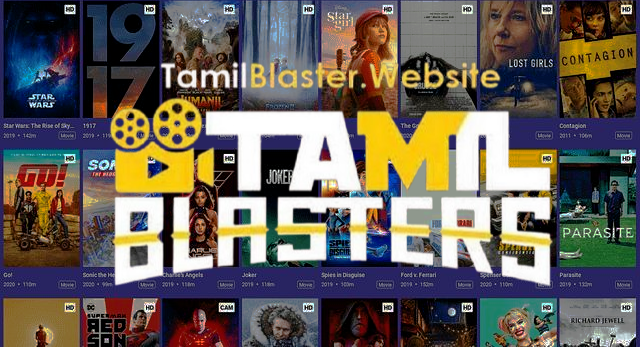In the age of digital entertainment, the rise of streaming services has transformed how people consume movies and TV shows. However, the increase in online media consumption has also given rise to illegal platforms that distribute pirated content. One such notorious website is Tamilblasters. This platform primarily targets Indian films, particularly Tamil movies, but also provides access to a wide range of other regional films and international content. While it has gained popularity among users seeking free access to movies, it operates in a legally dubious space, raising ethical and legal concerns.
This article delves into the world of Tamilblasters, its impact on the film industry, its audience, legal implications, and the broader issues related to online piracy.
1. The Rise of Tamilblasters
Tamilblasters, like many other piracy websites, emerged as a solution for individuals who wanted free access to movies without having to pay for streaming services or theater tickets. While such platforms initially focused on
Tamil cinema, they have now expanded to include content from other Indian film industries, including Telugu, Malayalam, Hindi, and even international movies and TV shows.
A Hub for Free Content
Tamilblasters primarily caters to an audience that seeks new movie releases. Films that are still in theaters, or set for OTT (Over-the-Top) platform releases, are often leaked on Tamilblasters within hours of their premiere. This has made the website immensely popular among movie lovers who do not wish to wait or pay for official releases.
Easy Accessibility
One of the reasons for the website’s popularity is its ease of use. Tamilblasters offers users a simple interface, with easily accessible download links and streaming options. The website regularly updates its content library, ensuring users have access to the latest releases. However, these seemingly harmless features mask the illegal activities the website engages in, with many users unaware of the consequences of consuming pirated content.
2. The Legal Battle Against Tamilblasters
Online piracy, especially through platforms like Tamilblasters, is a serious offense in many countries, including India. Various laws have been established to protect intellectual property rights and prevent unauthorized distribution of copyrighted content. Despite this, websites like Tamilblasters continue to thrive due to loopholes in the enforcement of these laws and the site’s ability to constantly change domain names and hosting providers.
Copyright Violations
Tamilblasters’ distribution of pirated content constitutes a clear violation of copyright laws. The Indian Copyright Act of 1957 protects filmmakers and content creators from unauthorized reproduction or distribution of their works. By hosting copyrighted movies and TV shows without permission, Tamilblasters is in direct violation of this act, making it subject to legal action from copyright holders.
The Role of Internet Service Providers (ISPs)
To combat piracy, government authorities have occasionally ordered ISPs to block access to websites like Tamilblasters. However, the effectiveness of these measures is limited. Piracy websites frequently change their domain names or mirror sites to avoid detection. This “cat-and-mouse” game makes it challenging for authorities to enforce long-term bans on such platforms.
Criminal Penalties
Operating a piracy website or downloading content from such sites is illegal. In India, punishments for copyright infringement can include fines and imprisonment. Although authorities have cracked down on several piracy operators over the years, sites like Tamilblasters continue to find ways to evade prosecution.
3. The Impact of Piracy on the Film Industry
The effects of piracy on the film industry are profound and far-reaching. While some users may see Tamilblasters as a convenient way to watch movies for free, the damage caused to filmmakers, production houses, and the entertainment industry as a whole cannot be ignored.
Financial Losses
One of the most significant impacts of Tamilblasters and other piracy platforms is the financial loss experienced by film producers and distributors. Films are expensive to produce, involving substantial investments in talent, equipment, marketing, and distribution. Piracy websites distribute these films for free, depriving producers of legitimate revenue that would have otherwise been earned through theater tickets, streaming subscriptions, and DVD sales.
Box Office Disruptions
Piracy sites like Tamilblasters often leak movies within hours of their theatrical release, significantly affecting box office earnings. For example, a much-anticipated Tamil or Bollywood film might see its opening day collections plummet due to widespread online availability on platforms like Tamilblasters. This hurts not only the producers but also theaters, employees, and associated businesses that rely on movie revenues.
Impact on OTT Platforms
The rise of OTT platforms such as Netflix, Amazon Prime, and Disney+ has provided a legal and convenient alternative to traditional movie-watching methods. However, piracy websites undermine these platforms by offering content for free, discouraging users from subscribing to legitimate streaming services. This affects the revenue generated by OTT platforms, which rely on subscription fees and advertising revenue to fund new content.
Stifling Creativity and Innovation
When filmmakers are deprived of fair compensation for their work due to piracy, it discourages innovation and risk-taking in the film industry. Content creators are less likely to experiment with unique storytelling, genres, or artistic expressions if they know their work will be pirated and result in financial loss.
4. Ethical Considerations for Users
While Tamilblasters may seem like a quick and easy way to access free content, it is important for users to consider the ethical implications of their actions.
Supporting Illegal Activities
Using piracy websites directly supports illegal operations. When users download or stream pirated content, they are contributing to an industry that profits from the theft of intellectual property. This not only harms the creators but also perpetuates a cycle of criminal behavior that is difficult to break.
Impact on Employment in the Entertainment Industry
Piracy doesn’t just affect filmmakers—it has a ripple effect throughout the entire entertainment ecosystem. From actors and directors to technicians, marketers, and theater employees, many people are employed in the creation and distribution of films. When piracy reduces the revenue generated by a film, it ultimately impacts the livelihoods of thousands of people working behind the scenes.
5. User Risks Associated with Piracy Websites
Beyond ethical and legal concerns, there are numerous risks associated with visiting piracy websites like Tamilblasters. These risks can affect users in both direct and indirect ways.
Malware and Viruses
Piracy websites are often filled with malicious ads, pop-ups, and downloads that can infect a user’s device with malware or viruses. Users who visit sites like Tamilblasters without adequate protection are at risk of compromising their personal data, financial information, or system functionality.
Legal Consequences for Users
While most legal actions target the operators of piracy websites, users themselves can also face penalties for downloading or streaming pirated content. In India and many other countries, accessing pirated materials is a punishable offense that can result in fines or imprisonment.
Poor Quality Content
Pirated movies are often of low quality, with blurry visuals, poor sound, or incomplete scenes. Users downloading from Tamilblasters may find themselves with an inferior viewing experience compared to legitimate platforms, where content is professionally produced and delivered.
6. The Fight Against Piracy: What Can Be Done?
While authorities continue to battle against piracy websites like Tamilblasters, the fight is far from over. Several measures can be taken by both the government and users to curb the spread of illegal content.
Government Crackdowns
Governments can introduce stricter laws and better enforcement strategies to deter piracy. This includes more frequent monitoring of piracy websites, holding ISPs accountable for allowing access to illegal sites, and imposing harsher penalties for piracy operators.
Awareness Campaigns
Raising awareness among the public about the negative impact of piracy is essential. Educational campaigns that highlight the ethical, legal, and financial consequences of piracy can encourage people to opt for legal methods of content consumption.
Supporting Legal Alternatives
Promoting legal alternatives to piracy, such as affordable streaming services, can be an effective way to combat piracy. By making content more accessible through legitimate means, users will be less inclined to seek out illegal sources.
7. Conclusion
Tamilblasters may offer an appealing shortcut for accessing movies, but the website operates in a legally and ethically grey area. From violating copyright laws to harming the livelihoods of countless people in the entertainment industry, the impact of piracy is profound. For users, the short-term benefits of free content do not outweigh the long-term consequences of supporting illegal activities. Governments, users, and the entertainment industry must work together to combat piracy and promote legal alternatives.
While Tamilblasters continues to operate, it is important for users to reconsider their involvement with such platforms. By supporting legitimate content providers, viewers can enjoy high-quality entertainment while ensuring that filmmakers, producers, and all those involved in the creative process are fairly compensated for their work.


